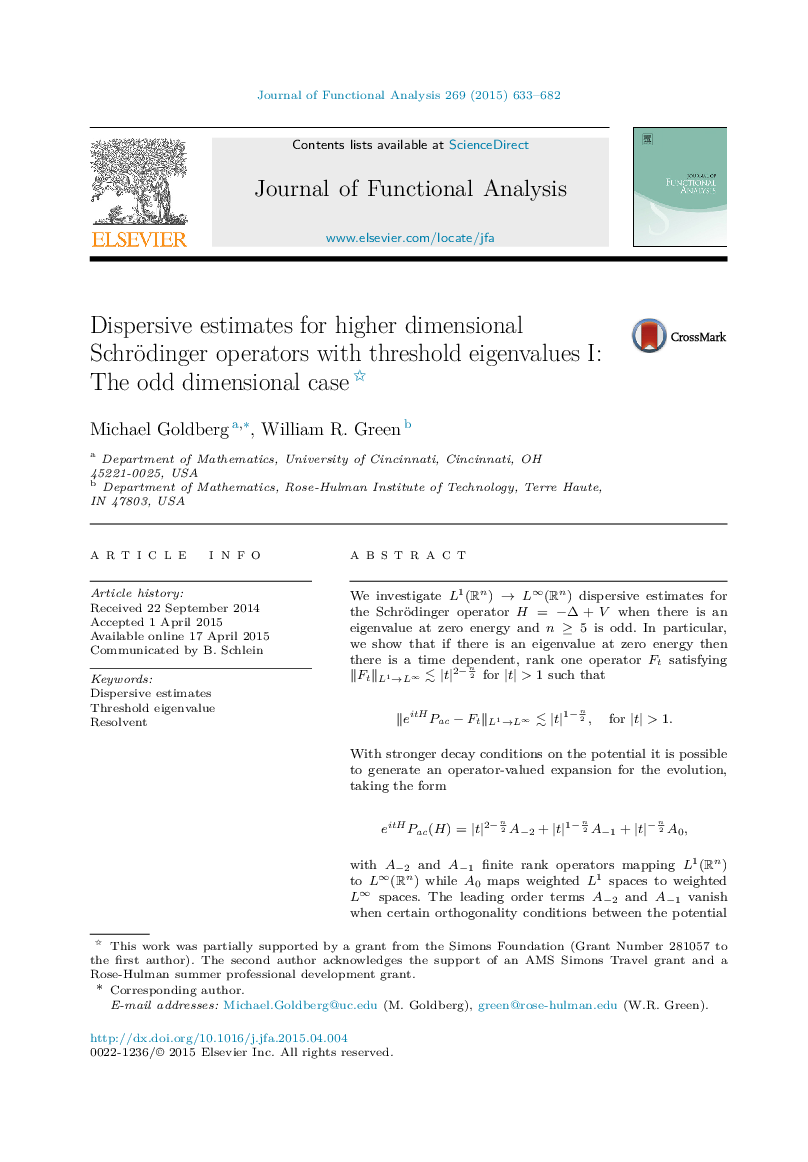| Article ID | Journal | Published Year | Pages | File Type |
|---|---|---|---|---|
| 4589799 | Journal of Functional Analysis | 2015 | 50 Pages |
We investigate L1(Rn)→L∞(Rn)L1(Rn)→L∞(Rn) dispersive estimates for the Schrödinger operator H=−Δ+VH=−Δ+V when there is an eigenvalue at zero energy and n≥5n≥5 is odd. In particular, we show that if there is an eigenvalue at zero energy then there is a time dependent, rank one operator FtFt satisfying ‖Ft‖L1→L∞≲|t|2−n2 for |t|>1|t|>1 such that‖eitHPac−Ft‖L1→L∞≲|t|1−n2,for |t|>1. With stronger decay conditions on the potential it is possible to generate an operator-valued expansion for the evolution, taking the formeitHPac(H)=|t|2−n2A−2+|t|1−n2A−1+|t|−n2A0, with A−2A−2 and A−1A−1 finite rank operators mapping L1(Rn)L1(Rn) to L∞(Rn)L∞(Rn) while A0A0 maps weighted L1L1 spaces to weighted L∞L∞ spaces. The leading order terms A−2A−2 and A−1A−1 vanish when certain orthogonality conditions between the potential V and the zero energy eigenfunctions are satisfied. We show that under the same orthogonality conditions, the remaining |t|−n2A0 term also exists as a map from L1(Rn)L1(Rn) to L∞(Rn)L∞(Rn), hence eitHPac(H)eitHPac(H) satisfies the same dispersive bounds as the free evolution despite the eigenvalue at zero.
